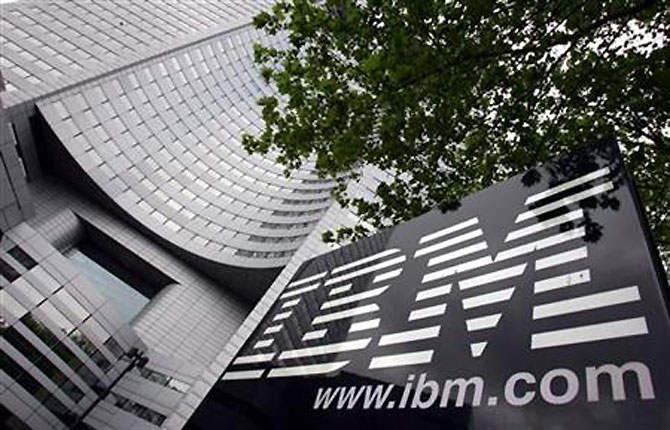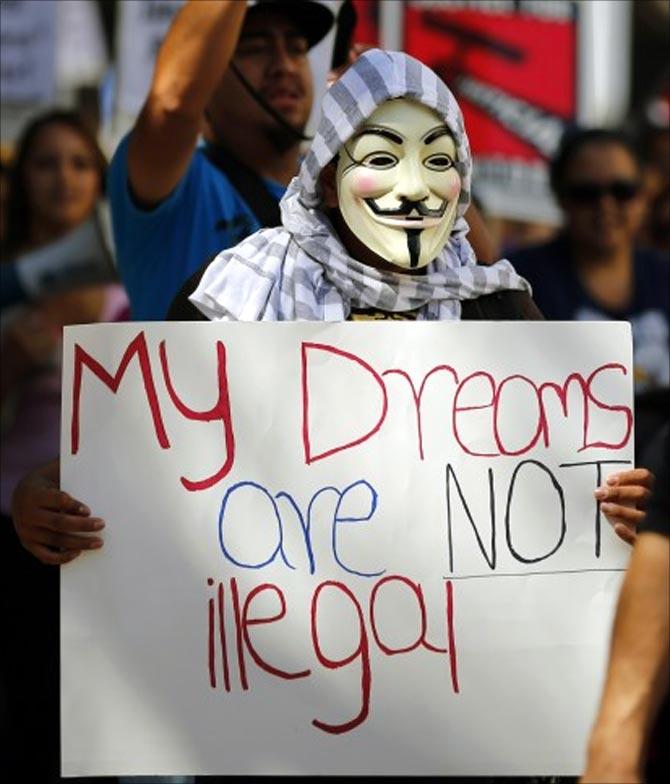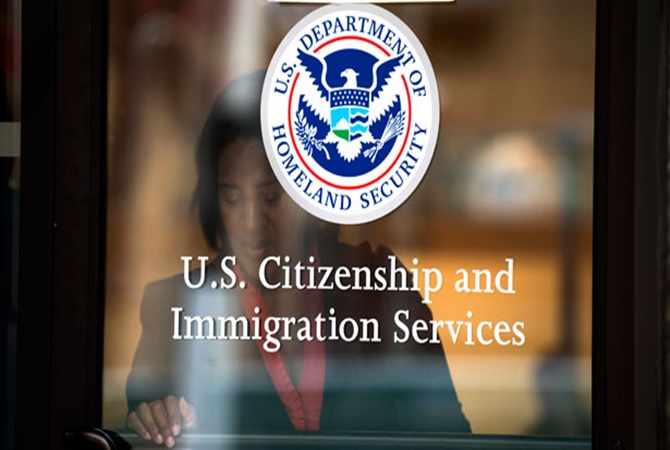 | « Back to article | Print this article |
US firms back India's case on immigration Bill
IBM writes to US Congress; Premji meets Biden
As India increases its lobbying for a more favourable US immigration Bill, the country’s $100-billion software export industry has begun to find support from American firms and some former US envoys.
IBM, for example, has supported a legislation that is free from country-specific restrictions. The backing is more significant as it has come ahead of Prime Minister Manmohan Singh’s meeting later this month with US President Barack Obama, for which the immigration Bill is likely to be top on agenda.
Though the House version of the Bill is more favourable to Indian software service exporters, the country is maintaining the pressure to avoid last-minute surprises when the law is finally passed.
Industry sources say Wipro chairman Azim Premji recently met US Vice-President Joe Biden while Infosys chairman N R Narayana Murthy raised the issue with the PM.
Both Wirpo and Infosys refused to comment.
Singh is scheduled to meet Obama on September 27. “This (the Bill) is going to be one of the very few important issues Singh will take up with (Barack) Obama,” a top government official confirms.
Click on NEXT for more...
US firms back India's case on immigration Bill
Besides, five former US envoys to India — Thomas R Pickering, Frank G Wisner, Richard Celeste, Robert Blackwill and David Mulford — have also spoken against the proposed Bill, indicating the issue might adversely affect the Indo-US bilateral strategic relationship.
Som Mittal, president of Nasscom, which has been lobbying for a more favourable Bill, said there had been a turnaround as American companies were also supporting India’s viewpoint on the Bill.
“There is an increasing realisation that the Bill doesn’t help US corporations and their economy.” In fact, US corporations like IBM have written letters to let their Congressmen know that the Bill should not have restrictive provisions. Even companies like Microsoft have been trying to impress upon Capitol Hill that putting restrictions does not help American industry.”
According to the letter written by Christopher A Padilla, IBM’s vice-president for government programmes, the company supports the Bill’s clean approach to granting high-skilled visas and the fact that it does not discriminate in giving those on the basis on nationality or the visa-usage pattern of applicant firms.
“The ability of companies operating in the US to access talent on a level playing field is critical to the competitiveness of our economy and will support further investment and job creation.”
Click on NEXT for more...
US firms back India's case on immigration Bill
The House version of the Bill has increased the cap on H-1B visas, pegging it higher than the Senate version but has created various slabs for wages that will increase the employee cost for companies.
The industry is also worried that some unfavourable clauses could return when the Bill reaches the conferencing stage as the Senate and the House negotiate various provisions in the respective drafts and try to reach a common point.
Keeping this in mind, the industry is engaging in a dialogue at all levels possible.
Wipro’s Premji wrote a letter to Singh, saying: “We want your support to seek White House intervention to eliminate the discriminatory provisions in both the Senate and House Bills and to treat Indian IT service providers on a par. This is in the interest of the Indo-US trade relations and in keeping with your vision to increase bilateral trade by five times from the current level of $100 billion.”
According to a senior industry official, “the immigration Bill was also discussed when (PM) Singh met industry captains recently”.
The government on its part is also keeping the pressure high.
Click on NEXT for more...
US firms back India's case on immigration Bill
India has repeatedly been raising the issue of the Bill at diplomatic and political levels. Recently, Commerce Minister Anand Sharma took up the matter again with US Trade Representative Michael Froman during a telephonic conversation, officials told Business Standard.
He said short-term movements of people for delivering services should not be confused with immigration. He also clearly said to his US counterpart such measures would adversely affect the interest of the US’ own industry.
Another official said Singh should flag this issue during his meeting with Obama as the most important one because any legislation that sought to selectively apply visa-related restrictions only on Indian IT business interest in the US would “not be in accord with the spirit of deepening strategic partnership between the two countries and may impact the common efforts to strengthen economic and trade cooperation the governments of the two countries are actively pursuing”.
India has also threatened to move the disputes settlement body of the World Trade Organization (WTO) if the Bill gets passed as a law in its present form.
Click on NEXT for more...
US firms back India's case on immigration Bill
| Sticking points |
Some key provisions in the draft legislation Wage plan Non-American companies will have to provide wages that are average of American wages Visa fees All firms that have 50% or more non-US employees will have to pay higher visa fees of $10,000 (compared with $4,500 at present and the $2000 for H-1B and L-1 visas originally) Issues the Indian IT industry might face: The 50-50 model Increases entry burden on firms employing more non-Americans — most such companies are Indian IT firms The wage quantum The proposed Bill has created various slabs for wages, which, when applicable, would inflate the employee cost for Indian firms |





